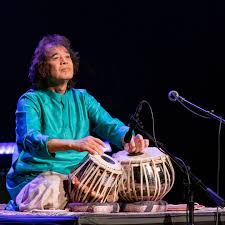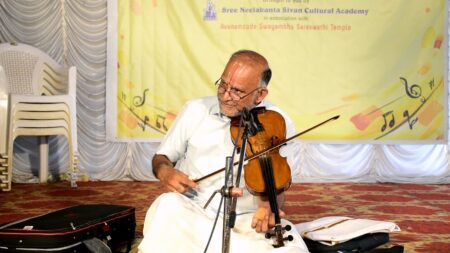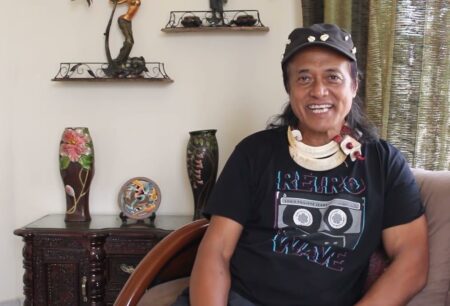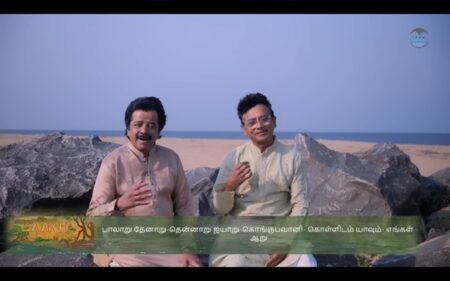Legendary tabla virtuoso Ustad Zakir Hussain passes away, leaving the world in mourning.
The world of music has lost one of its brightest luminaries. Ustad Zakir Hussain, the legendary tabla maestro, passed away, in San Francisco at the age of 73. His death marks the end of an era, leaving a void in the space of Indian classical music and beyond. Hussain is survived by his wife, Antonia Minnecola, his daughters Anisa Qureshi and her family, Isabella Qureshi and her family, his brothers Taufiq and Fazal Qureshi, and his sister Khurshid Aulia
Born in 1951, Zakir Hussain was the son of Ustad Allah Rakha, himself a towering figure in the world of tabla. From an early age, Zakir displayed prodigious talent, performing at the age of seven and touring internationally by twelve. Growing up in a household steeped in rhythm and melody, he often remarked, “You grow up in the atmosphere of music 24 hours a day, and you don’t have to do anything else.”
Zakir Hussain’s genius lay not just in technical expertise, but in his ability to transform the tabla into a universal language. He was not just a masterful accompanist and soloist but also a pioneer who brought the tabla into new realms of global appreciation. His collaborations with his father set the foundation for his lifelong mission to elevate the status of the tabla, transforming it from a supporting instrument to a celebrated solo voice in its own right.
The rhythm architect
Over the decades, Zakir Hussain became synonymous with artistic brilliance and cross-cultural dialogue. He was a key figure in promoting a musical conversation between North and South Indian streams, a feat that enriched the Indian classical music. Beyond the borders of India, he was widely regarded as a chief architect of the contemporary world music movement. His groundbreaking collaborations with artists such as John McLaughlin, Mickey Hart, Yo-Yo Ma, and the Kodo drummers expanded the horizons of percussion and introduced the tabla to global audiences.
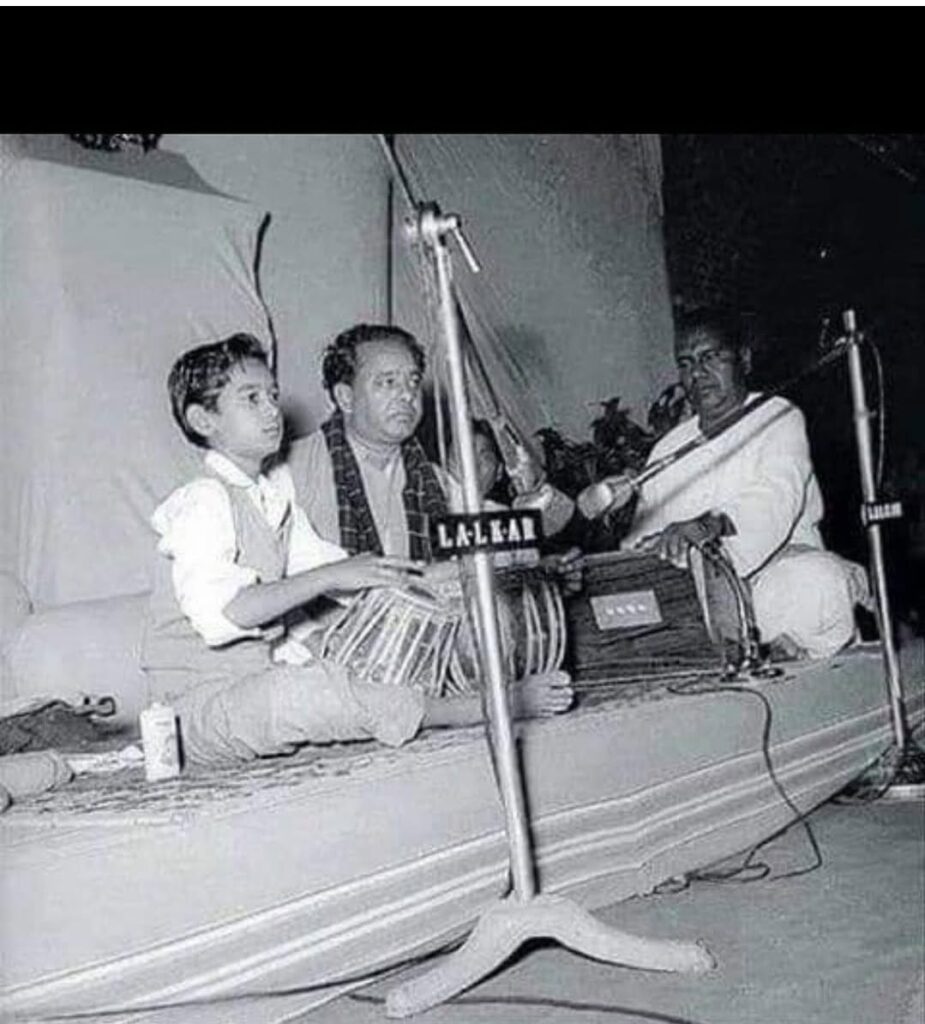
Zakir Hussain’s ensembles, including Shakti, Remember Shakti, and Planet Drum, achieved legendary status. Planet Drum, co-created with Mickey Hart, became the first album to win a Grammy in the Best World Music category in 1992. His solo album Making Music (1987) was hailed as one of the most inspired East-West fusion works ever recorded. Through these collaborations and recordings, he transcended genres, weaving a tapestry of sound that resonated across cultures.
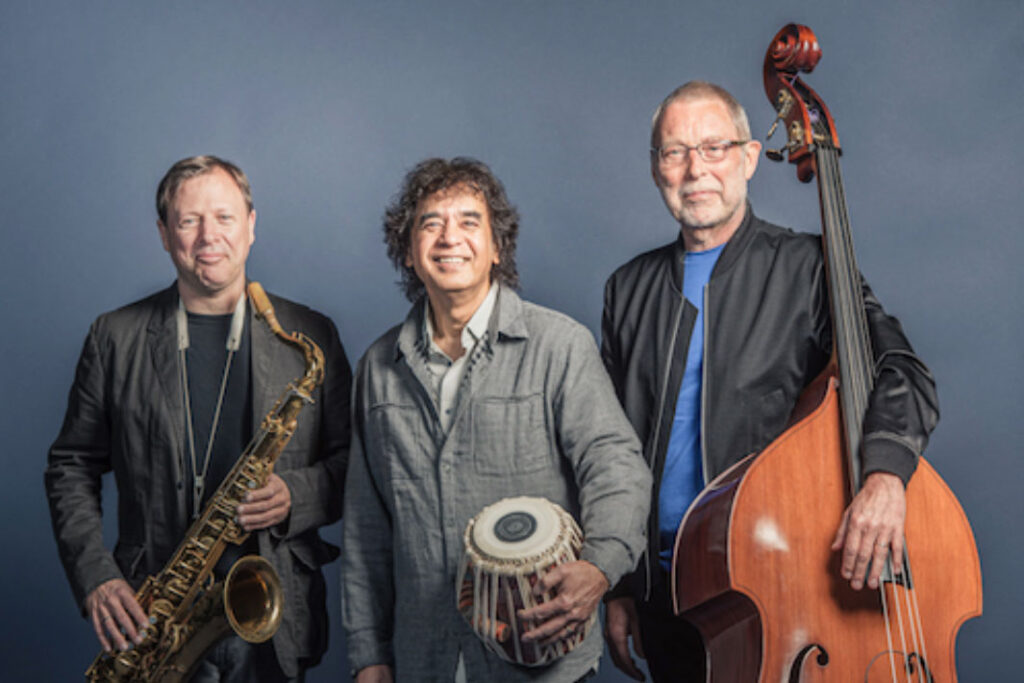
Pioneering soundscapes
As a composer, Zakir Hussain’s contributions were equally significant. He scored music for films, major events, and productions, and his three concertos stand as milestones in the fusion of Indian and Western classical traditions. His concerto for tabla and orchestra, premiered in 2015, was a pioneering work that showcased the tabla’s versatility and expressive power on the global stage.
Recognition for Zakir Hussain’s talent came in many forms. He was a recipient of the Padma Vibhushan, India’s second-highest civilian award, and the Sangeet Natak Akademi Award. Internationally, he was honoured with the National Heritage Fellowship in the United States, the Order of Arts and Letters in France, and the prestigious Kyoto Prize in Arts and Philosophy in 2022. He was also a Sangeet Natak Akademi Fellow, a rare lifetime distinction.
Zakir Hussain’s influence extended beyond his technical brilliance and accolades. He was a cultural ambassador who bridged divides through his music. His performances at iconic venues like Carnegie Hall and his role in festivals worldwide brought Indian classical music to a global audience, inspiring countless musicians and listeners alike.
Despite his global stature, Zakir Hussain remained deeply rooted in the traditions of Indian classical music. His performances were imbued with a deep sense of respect for his heritage, even as he explored new musical territories. He often spoke of his father’s influence, crediting Ustad Allah Rakha with instilling in him the discipline and passion that defined his life’s work.
Ustad Zakir Hussain’s passing is a monumental loss, but his legacy endures in the rhythms he crafted, the boundaries he dissolved, and the countless lives he touched. His music will continue to inspire generations, reminding us of the unifying power of art and the infinite possibilities of human creativity.

